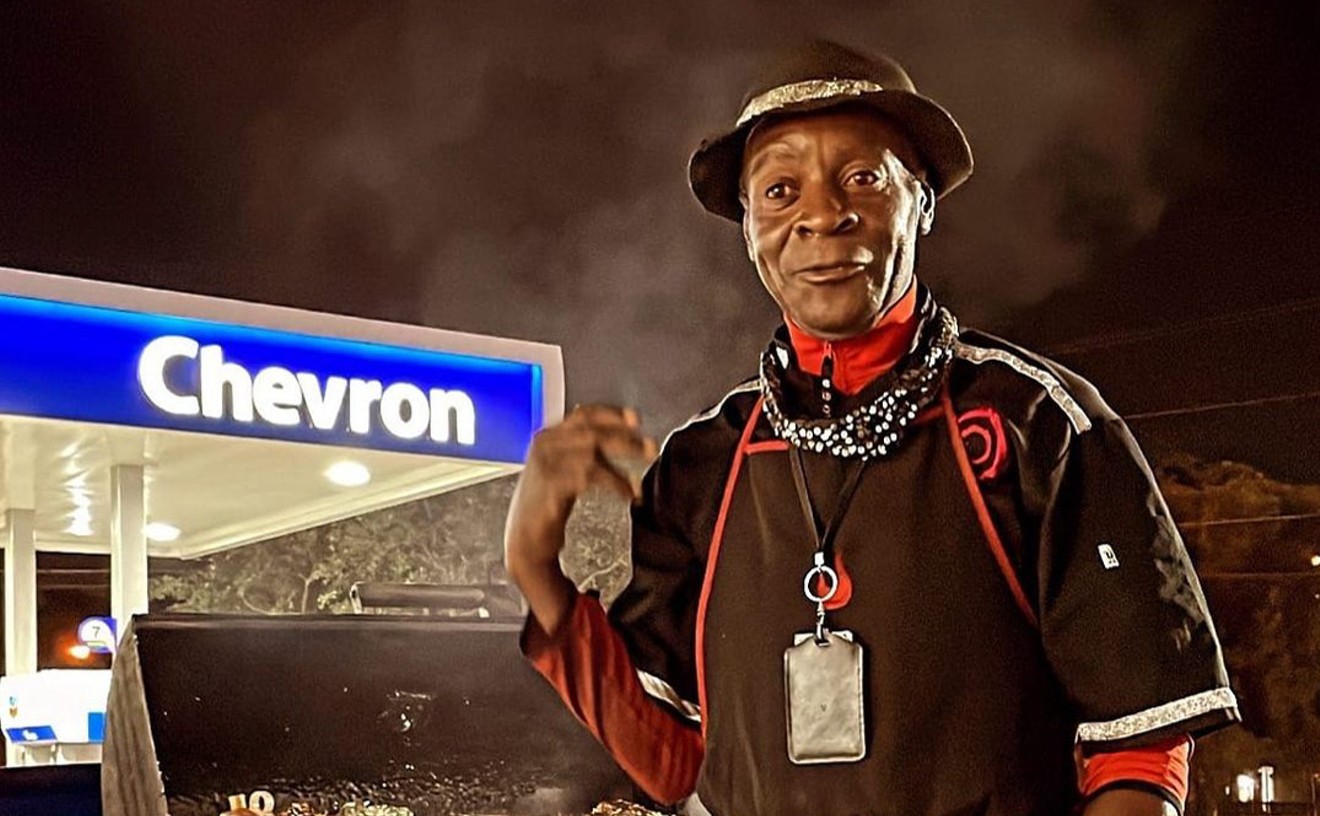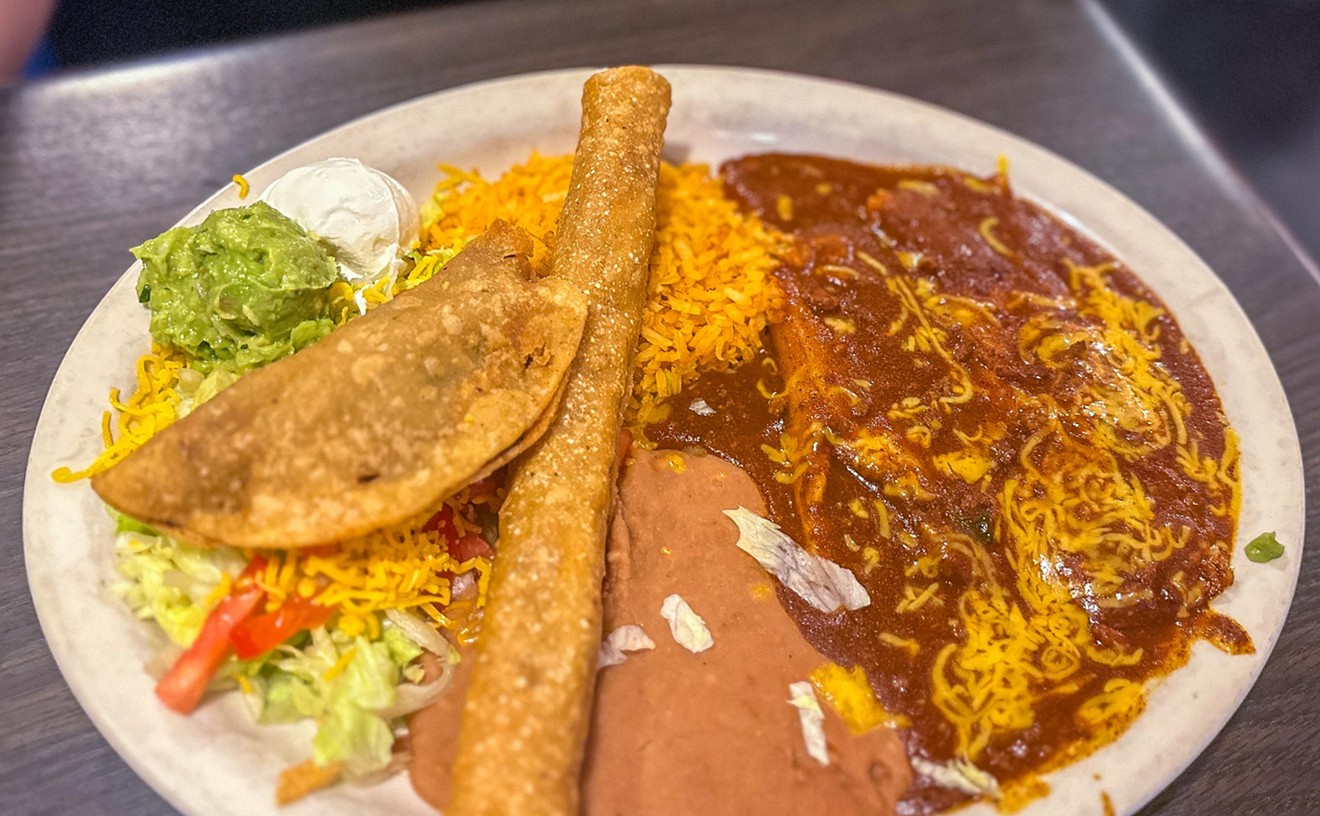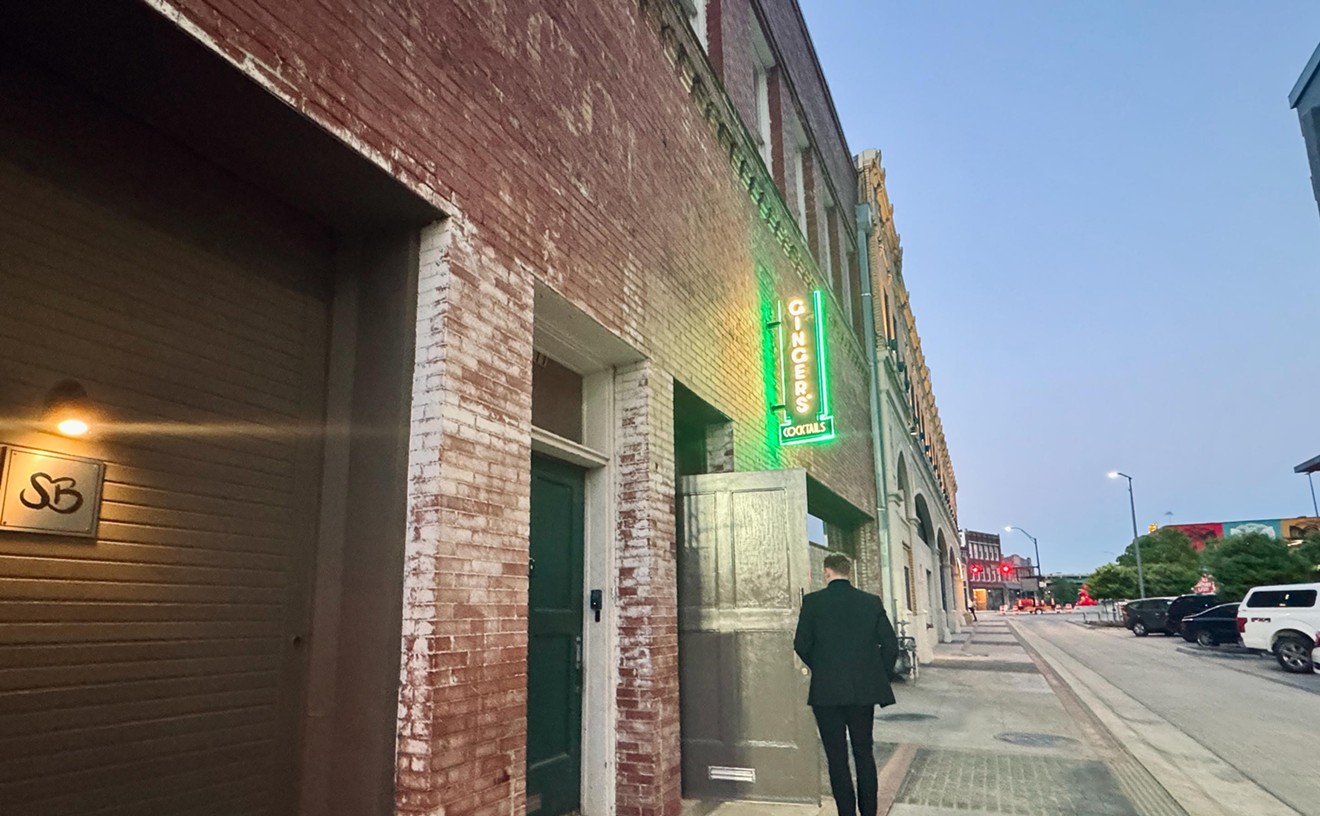There are approximately one million restaurants in Dallas that can serve you a steak. Whether or not that steak is going to be good, though, is really up to who's running the kitchen. Restaurateur and chef Nick Badovinus' restaurants are reliable places to find a nicely charred hunk of good dry-aged meat, even more so now that he's expanded his Neighborhood Services empire north to Addison.
In Addison, the grillmaster and executive chef is Jeff Bekavac, a relative unknown in the dining scene. Unlike the chefs who are clamoring for spots on reality TV and starting Twitter wars, Bekavac prefers to cook in the background and let his food speak for itself. We sat down with Bekavac to talk about his journey to Nick Badovinus' empire, how he works with one of the city's most important restaurateurs, and where Dallas lands in the global culinary scene.
You're a pretty unknown quantity in the local culinary scene, at least to diners. What's your background in the kitchen?
I grew up in Dallas, born and raised in Coppell. I got my degree at Texas A&M University, and then I moved to San Francisco and went to culinary school. I worked at a couple of restaurants, and Greg Bussey and I were actually in the same class at California Culinary Academy. I was there right after 9/11, and that was kind of terrible for my career. Finding a job was really hard. I worked at a restaurant for four months without pay because nobody was going out to eat at that time.
I staged at a restaurant for literally one night, and I got my first job running a station just a few days later. It was probably the worst night of my entire cooking career. I'd never made a soufflé in my life, and I was having to make them to order. That station did all the first courses, the amuse bouche and 12 or so different ice creams. I was bending down to pick something up and the chef actually pushed me over with his knee just to laugh at me because I was so overwhelmed. He ended up being a really great mentor and teacher, and I was working there in this tiny kitchen with a couple of really talented guys.
After that, I spent some time in New Orleans, and then I moved to San Antonio. I spent a ton of time there, and Jason and Jake Dady are two of my best friends. Jake was the best man in my wedding, and Jason is actually the reason that I ended up going to California Culinary Academy. He'd just opened The Lodge restaurant at the time, and he gave me my first sous chef job even though I really didn't deserve it. I wasn't ready, but I figured it out. San Antonio was very old guard, and Jason was a young guy -- maybe 27 at the time -- and we were doing all these crazy tasting menus, and you could just tell that people were wondering what these whippersnappers were doing. It was a lot of fun, but it was a lot of work every single day. We made everything from scratch, and we brought something to that city that they weren't really used to.
What about when you came back to Dallas?
I was working for a flatware company, and a mutual friend told me that I had to meet this guy named Nick [Badovinus]. He was working to get Hibiscus and all these other restaurants open, and I had just staged with Sharon Hage over at York Street. I decided to go talk to him, and I'll never forget when we met. He had his son in his backpack, he met me over at Hibiscus, and we walked through this construction zone while they were getting the bar in and we just talked about everything that he was planning for the restaurant.
We hit it off from day one, and he already had his chef team ready to go, so I started as a lead line cook. The sous chef was let go pretty quickly, so I started doing everything. That restaurant was very, very busy. In that time, I learned a lot from Nick. I'd just gotten back to Dallas and I'd kind of been grinding away at a job I didn't like. I decided I wanted to do something different and learn something other than the independent restaurant business. I got a job at Central Market in Fort Worth, and that was a fantastic experience. I worked there for three years and in the meantime, I married my wife. Nick left Consilient around late 2007, and I sent him a text to find out was going on, because we'd kept in touch. I had this secure job with a 401K and working five days a week, so I wasn't sure whether or not I really wanted to take a chance on this new place called Neighborhood Services that Nick was planning.
I was scared at the time, and I think Nick was a little nervous. They opened October 31, and I started working there in April of that next year. I'd been in to eat a few times, and by then, I was itching to leave my job, and Nick wanted me on board. The rest is sort of history -- I've been around ever since. Now, six years later, it was the best decision of my career.
There seem to be kind of polarized opinions about working with Nick Badovinus -- people love him and people hate him. How did you work out your working relationship with him?
The stars aligned a little bit, personality wise. I've always worked really hard, I started working at 16 and worked my way through college and culinary school. You have to enjoy what you do, and I don't believe in going to work to just cash a paycheck. You have to put your heart and soul into it. I think Nick does that, and I respect that. From the beginning, we've always been really honest with each other and I appreciate that honesty.
Neither of us want sugar-coating, and we don't tip-toe around something that's not going right. We have a great working relationship and a personal relationship. To really propel a business forward and do it right, there are a lot of brutal truths you have to tell yourself. If something isn't good, it's not good. If a dish isn't seasoned properly, it's not seasoned properly. There's no way around it. We're in here every day grinding away, and that's because we care about this business. We've done some great stuff together, and I think a lot of that has to do with the two of us sitting down at the end of a really long day and figuring out what went well and what didn't. From there, we want to improve everything for tomorrow.
You're never going to be perfect, but what are you working toward? Are you really putting the time in to make something really great? I think we do. That goes down to even the really unglamorous, not fun things, like making sure the grind on our brisket is perfect, that the cuts of meat are trimmed properly. Those things have to be right, and that takes a really high-energy person like Nick. People might think that's not real, but he goes all the time. He's a perfectionist. I'm pretty calm, so I can balance that out a little bit.
Neighborhood Services is the kind of restaurant that means different things for different people. You can come in and have a cocktail or a snack, or you can sit down to one of the best steaks in town. How do you deal with those two very different perceptions?
We have a great steak program, we definitely do. We get a lot of phenomenal product, and I think with Neighborhood Services, people can come here and get whatever they want. They can come in on Monday or Tuesday and have a drink or burger at the bar, then bring their date back on Saturday night to eat a great steak. We have a lot of options, but a great steak is always one of those. I think what Neighborhood Services means to you is sort of what kind of mood you're in. We want to give people plenty of options. We have a full fish program, we do a lot of daily specials. But we've also got the burger and the fried asparagus if you don't want all that.
So how do you make sure that the snacks and simple dishes like fish 'n' chips match up with the expensive-ass meat that you're throwing on the grill?
Well, tonight we're doing a butcher's meatloaf, and it's really, really good. It's not an average meatloaf that is boring and forgettable. A meatloaf is just a meatloaf if it's just boring meatloaf. I want to pack so much flavor into every single bite of that meatloaf that it creates a food memory. These dishes might look simple, and we don't do a lot of fancy technique, but we've always got big flavors. We're constantly seasoning and tasting because that's important. There's not any kind of magic to it, it's just paying attention. And that's hard to do day-in, day-out. But I enjoy that challenge.
What about casual food appeals to you?
I think that everyone who is cooking out there is working hard, but we gravitate toward different kinds of food. This is what I grew up making, just with more technique and tweaks to make it better. This is the kind of food that I like to eat every day. I love Matt [McCallister] down at FT33 and what Misti [Norris] is doing at Small Brewpub, but I don't believe that food is art. At least not for me. It's nourishment, it's a way to bring people together, it's a way to have fun.
It's a time to talk to your family and hash it all out. People can come into Neighborhood Services and not worry about the technique. They don't have to care if I'm foraging things outside the restaurant. I think all that's great, but that's not my style. I just want people to come in, have a good time and smile when they leave. That's it. I'm not smart enough to do all that intricate technique, so I stick with what works for me. You excel at the things that you enjoy.
Do you think that's the direction of the modern restaurant -- casual, technique-driven food? How'd we get there?
You can trace it back to the tuna cone at the French Laundry. When I was in San Francisco, I was so tired of doing cones because everyone was doing that. Then we moved into this Americana, gastropub kind of food. Then back to super high-end technique and locally sourced food. Right now, if you look at the dining community, I think everyone's figuring out how to merge all those things together.
How do you create a plate that's rooted in old-school technique or come up with a new, creative way to cook fish? That has a lot to do with the fact that the consumer is more educated than they've ever been, which means that chefs have to be innovative, creative, and keep the restaurant busy. It's an interesting phenomenon. In this business, no one wants to be left behind, everyone wants to be au courant. We're never going to be on the cutting-edge of technique, and we're fine with that. But we're trying to find that balance every single day.
Do you think Dallas' dining scene could ever be considered on the cutting-edge of technique in general?
San Francisco and New York are really hard to match. You're not going to have those year-round growing seasons in the Bay Area and being right next to the ocean. There's so much stuff around you. I haven't really thought about whether or not Dallas would be on the forefront of cuisine --
I don't even mean the forefront, just running with the pack!
Maybe I'm just puffing my chest out as a chef, but I think Dallas has a lot to offer an international diner. We're proud of who we are as a city, and the food that's being served here. You have guys like Dean Fearing and Stephen Pyles who blazed a lot of trails, and now Matt McCallister and Omar Flores are continuing that. I feel like we're considered a pretty modern dining city. Or at least we should be. It's hard to say when you're on the inside looking out how people perceive you.










